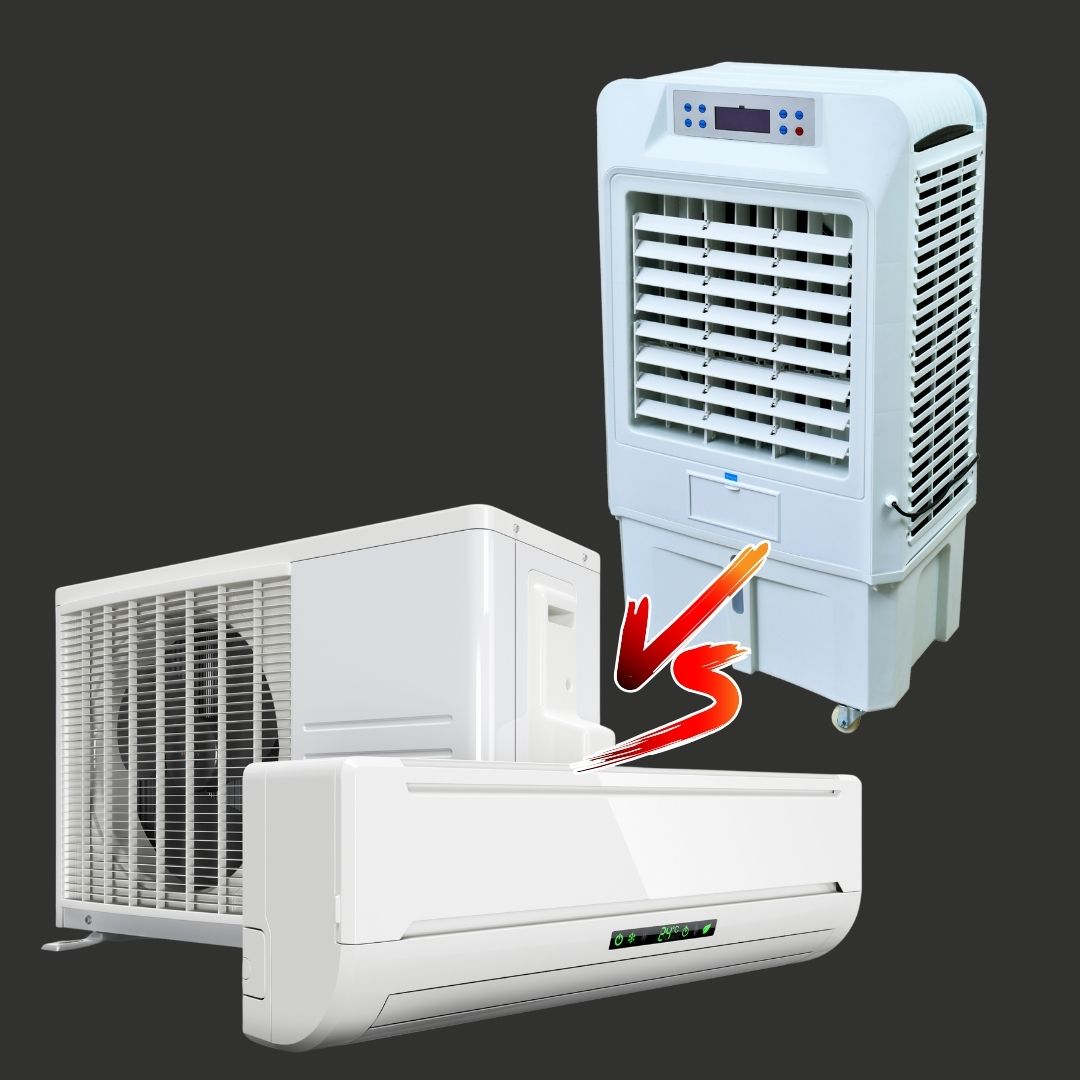Differences Between an Air Conditioner and an Air Cooler: Where to Use Each in Kenya

When it comes to cooling your home or office, choosing between an air conditioner and an air cooler can be a difficult decision. Both devices serve the purpose of providing relief from heat, but they work in different ways and are suitable for different climates. In Kenya, where climate conditions vary significantly from region to region, it’s essential to understand the differences between these two cooling solutions and where each is best suited.
How Air Conditioners Work
An air conditioner (AC) is a more advanced cooling system that uses refrigerants to cool the air. It extracts warm air from a room, cools it using a chemical refrigerant, and then recirculates the cooled air back into the room. Air conditioners not only lower the temperature but also control humidity levels, which makes them perfect for areas with high humidity. AC units come in different types such as window units, split systems, and central air systems, all of which offer precise control over temperature and humidity.
How Air Coolers Work
On the other hand, an air cooler operates on a simpler mechanism, known as evaporative cooling. It draws in warm air, passes it through water-soaked cooling pads, and releases the cooled air back into the room. Since air coolers rely on water evaporation to cool the air, they work best in dry, hot environments. Air coolers are more energy-efficient and environmentally friendly compared to air conditioners, but they are not as effective in humid climates.
Key Differences Between Air Conditioners and Air Coolers
- Cooling Method:
- Air Conditioner: Uses refrigerants to cool the air, making it effective in both dry and humid climates.
- Air Cooler: Uses water evaporation, which is only effective in dry climates and less effective in humid areas.
- Humidity Control:
- Air Conditioner: Regulates both temperature and humidity, making it ideal for regions with high humidity levels like Mombasa.
- Air Cooler: Adds moisture to the air, making it unsuitable for already humid areas.
- Energy Consumption:
- Air Conditioner: Consumes significantly more energy due to its complex cooling system.
- Air Cooler: Consumes far less energy, making it a more cost-effective solution for cooling in dry areas.
- Portability:
- Air Conditioner: Typically more stationary, though portable units are available. Most ACs require professional installation.
- Air Cooler: Portable and easy to move from one room to another, making it a flexible option for home or office use.
- Cost:
- Air Conditioner: Generally more expensive to purchase and install, as well as to operate due to higher energy usage.
- Air Cooler: More affordable to buy, run, and maintain, making it a budget-friendly option.
When to Use an Air Conditioner in Kenya
In Kenya, some regions experience high humidity, especially in coastal areas like Mombasa, Malindi, and Lamu. In such areas, air conditioners are the best choice because they can control both temperature and humidity. The humid air in these regions makes air coolers less effective since they add moisture to the air, exacerbating the discomfort.
Key regions where air conditioners are ideal:
- Mombasa: With humidity levels often exceeding 80%, an air conditioner is essential to not only cool but also dehumidify the air, making the environment more comfortable.
- Malindi and Lamu: Similar to Mombasa, these coastal regions have high humidity levels that can only be controlled with an air conditioner.
- Nairobi: Though Nairobi has a moderate climate, during warmer months or in certain office or commercial spaces, air conditioners offer a more controlled and comfortable environment.
When to Use an Air Cooler in Kenya
Air coolers are best suited for dry and hot climates, where the air has low humidity levels. Regions in Kenya such as Garissa, Mandera, Isiolo, Marsabit, Baringo, Turkana, Tana River, Samburu and Wajir are ideal for air coolers because of their drier air, especially during the dry seasons. Air coolers provide an energy-efficient, cost-effective way to cool spaces in these regions, without the need for dehumidification.
Key regions where air coolers are ideal:
- Nairobi: The cool, dry climate of Nairobi makes air coolers a great choice for home use during the warmer months.
- Mandera: With lower humidity levels, air coolers work efficiently in these areas to provide comfort at a fraction of the cost of running an air conditioner.
- Samburu: Similar to Nairobi, the dry conditions make air coolers more effective in providing comfort during the warmer times of the year.
Conclusion: Choosing the Right Cooling Solution for Your Needs
Choosing between an air conditioner and an air cooler in Kenya depends largely on your location and the climate. If you live in a humid coastal area like Mombasa, investing in an air conditioner will provide the best cooling and humidity control. For those in drier inland areas such as Mandera or samburu, an air cooler is a more affordable and eco-friendly option that will efficiently cool your space.
Whether you’re looking for energy efficiency, cost-effectiveness, or climate control, understanding the differences between air conditioners and air coolers will help you make the right choice for your home or business in Kenya.
